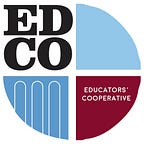Defeat a Deficit Mindset with One Word: Yes
Originally published by Colleen Cummings, founding teacher at Explore! Community School in East Nashville and a member of the Educators’ Cooperative Leadership Committee, on November 26, 2017, at https://educatorscooperative.com/2017/11/26/defeat-a-deficit-mindset-with-one-word-yes/
I started teaching for the Really Big Reasons. I teach because education changes individual lives and collective futures. I teach because education has the ability to empower, to open eyes, and open doors. I teach because I agree with John Dewey that a democratic society can only function with a group of well-educated individuals who have developed a sense of self-efficacy.
Now that I am teaching, I set Really Big Goals. All of my students will be on grade level, or achieve at least a year’s worth of growth every calendar year. All interventions (academic, social-emotional, behavioral) will be successful. Every student will end their 180 days in my classroom with enhanced confidence, a love of learning, a desire to engage in their communities, and the intrinsic motivation to do well in school for the following 12–16 years of their educational careers. Importantly, they will all change the world in Really Big Ways.
This type of purpose and goal setting can be a strength of mine in the classroom. I can connect my work back to a larger commitment, while ensuring I do not become stagnant in my development. I am continuously seeking out new ways to work with students, expanding my repertoire of skills. I keep pushing myself. A student grew two reading levels? Yes, but they have four more to grow to be on grade level. A student remembered to use an I-message when discussing their feelings? Yes, but they forgot to in the morning and later in the afternoon; let’s work to increase the frequency of this occurrence. A student spelled their last name correctly on their math test? Yes, but they missed the last letter in their morning journal entry. 99 out of 100 parts of the day went well? Yes, but there’s that one piece that could be improved. Every time something goes well, it is possible to keep reaching for the next level. “Yes, but…. Yes, but… Yes, but….”
Yes, but you know what? This mentality, while at times is a strength, is also my greatest vulnerability. I find myself continuously searching for and seeking that next level of accomplishment, while rarely recognizing the value of the work that has happened. Having a “yes, but…” perspective ends up being deficit-focused and defeating. It results in consistently focusing on the things in a classroom that are not going well, while glossing over, or even ignoring, the things that are.
In a profession as challenging as teaching, we don’t need to be creating additional challenges. Yet, this is precisely what I have done for myself in developing the “yes, but…” perspective. I’ve fallen into a cycle of nit picking for the negative, and ensuring that what I take home with me, what I dwell on in the evenings, are the areas in which I could have done better. By taking such demanding work and adding what is essentially a deficit-based mindset, I am fostering the development of an environment that will not be sustainable in the long term.
While it is right, and highly necessary, to notice areas for improvement, it is equally important to recognize and affirm successes. I commit to setting small goals, in addition to the large and lofty. I commit to acknowledging aspects of the day that might have gone well, without issuing a counter of something that could have been better. I commit to adopting a “yes” mindset.
What does this look like? When a student learns a new letter, the response is “yes, they did,” as opposed to “yes, but there are 14 left that are unknown.” When someone remembers to express discontent with words instead of actions, the acknowledgement is, “yes, they remembered,” instead of “yes, but we need to make sure this happens at every attempt.” When a transition is smooth between guided reading rotations, I’ll respond with “yes, that went well”, versus “yes, but the transition between math stations left much to be desired.”
Yes. This will be the way I approach my classroom. I will continue to look for ways to improve my practice and maintain high standards for my students and for myself, and I will also acknowledge the little moments and the small successes. I still teach for the same reasons that I entered the profession. I am now ensuring that I create a supportable environment to allow myself to work towards these Really Big Goals for a sustained period of time. Yes.
The Educators’ Cooperative is a non-profit organization that provides a professional learning community for K-12 teachers. Created for teachers by teachers in 2016, EdCo provides professional development and support for educators to collaborate across sectors, disciplines, and career stages. EdCo aims to revolutionize teacher development and leadership by focusing on the essential agency, autonomy, and common ground all teachers share. EdCo is based in Nashville, Tennessee with a reach far beyond that physical location and potential for replication in communities throughout the nation. When educators collaborate, the future of education is greater than the sum of its parts.
Please visit educatorscooperative.com for more information and to sign up for our newsletter.
